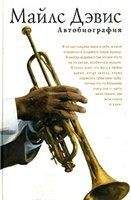Greg Iles - The Devils Punchbowl

Помощь проекту
The Devils Punchbowl читать книгу онлайн
Something in the quick blinking of his eyes tells her that whatever follows is going to be a lie. As she turns away, the fine cracks that have accumulated in her trust over the past weeks give way, and the true fragility of her existence is revealed. She stifles a wail, then goes to the kitchen cupboard and takes out a bottle of Isomil to heat on the stove.
She now knows that what she told herself after leaving her first husband was a lie.
If a man ever cheats on me again, I'll leave him in a second.
So easy to say, but with a baby in the nursery things get a lot more complicated.
Julia? Tim says awkwardly.
If he tries to approach her, she will move away to avoid smelling another woman on him. Theres something for you on the table, she says coldly.
Huh?
The table! She watches the gas flame glow at the edge of the pot.
Oh, God, Tim breathes. Julia
Mm-hm?
Its not what you think.
Its not? That's not dope on the table? That's not Vicodin and cocaine?
No. I mean it is, yeah. You know it is.
Let me guess. Its not yours, right? Youre just holding it for somebody.
Hearing the floor creak, she holds up a hand to ward him off. He stops.
Baby, I know what you think, but that stuff is part of what Penn and I are doing.
Even Julia is surprised by the harshness of her laughter. Oh, right. I understand now. You and the mayor are using a bag of dope to save the city.
Theres a brief silence. Then Tim says, Actually thats about it. Penn doesn't know about that part of it, but its the only way. That's all I can really tell you now. Anything else would be dangerous. In a few days, though, I should be able to explain it to you.
If youre not in jail, you mean?
Tim sighs in what sounds like exhaustion. I just wish youd believe me. Havent I earned that yet?
Julia grips the pot handle with her shaking hands. Part of her wants to throw the hot water on him, to scald him for lying to her. But part of her wants to believe. Tim sounded like he was telling the truth about the drugs, and she truly hasn't seen any signs of his being high. But hes lying about somethingthat she knows.
Julia?
Youre home now, she snaps, her eyes locked onto the milk bottle warming in the pot of water. Whatever youre doing, get it done, so we can get back to living.
Tim keeps his distance. Okay.
All right, she says, cutting off further discussion. Go get Timmy, please. You know what time it is. Hes going to start crying any second.
The kitchen is so small she can feel Tim nodding in the shadows. Okay, he mumbles in surrender.
Julia opens the bottle and touches some hot milk to the inside of her wrist. She knows whats important.
CHAPTER
7
I come awake swatting at my bedside table like a man battling a horsefly. According to the alarm clock, I got four hours of sleep. Its all I can do to walk blindly into the shower and stand under scalding spray until my synapses seem to be firing normally. After making sure Annie is awake, I dress a little sharper than usual, since I have to spend at least two hours giving Hans Necker, the visiting CEO, a tour of sites for his recycling plant. Annie gives me a thumbs-up when I walk into the kitchen, a rare seal of approval for my days outfit. Shes eating cereal and some garlic cheese grits my mother made yesterday. I finish off the cheese grits, drink the cup of coffee Annie has made me, and follow her out to the car, so exhausted that I forget to glance into Caitlins driveway for a car.
Annie is uncharacteristically quiet during the ride to St. Stephens, but as we near the turn for the school, I discover why.
I dreamed about Caitlin last night, she says softly.
Did you? I wonder whether my daughter could have seen or heard something across the street that told her Caitlin might be in town.
Annie nods with slow deliberation. As I watch her from the corner of my eye, it strikes me that the topless teenager serving beer in Tims photograph was probably only four years older than my daughter. This realization is freighted with such horror that I have to
clear my throat and look away. Annie knows nothing of such things yet, or at least I hope she doesn't. Right now one of her deepest concerns is the women in my life.
Have you ever dreamed about Caitlin before? I ask.
Yes. Not for a long time, though.
What was last nights dream about?
Annie keeps her eyes forward. I don't want to say.
Strange.
Why not? Was it scary?
Not at first. But then it was, kind of.
Recalling my own nightmare of the ice field and the wolf, I turn into the schools driveway and pull up to the door of the middle school building. Sometimes things are less scary if you talk about them.
Annie looks at me with her mothers eyes. I just want to think about it for a while.
Her enigmatic expression tells me shes already beyond my understanding. You know whats best for you, I guess.
She gets out and shoulders her backpack like a younger version of her babysitter, but as she walks through the big doors, I see her mother in every sway of her body. Its moments like thesethe most commonplace eventsthat hit me hardest, reminding me that
widower
is more than an archaic word. As my eleven-year-old disappears into the halls of the same school I attended at her age, I wish fervently that the woman who supplied the other half of Annies DNA could have lived to see who shes becoming.
Baby girl, I whisper to the breath-fogged window, Mama sees you.
In this affirmation lies a hope that I've never quite been able to sustain, yet still I continue to affirm it. I don't believe Sarah sits in heaven looking benevolently down upon our daughter; but I do believe she survives within Anniein her face, her voice, in her quick perception and even temperament. In my years with Caitlin, seeing these avatars of my wife in my daughter brought pleasure, not pain. But now, alone again, I find that each memory carries a sharp edge on its trailing side. Whatever brings you comfort can also bring you pain.
I turn onto Highway 61 and force my thoughts to the business of the city, which takes more effort than I would have believed possible two years ago.
Whoever said, Be careful what you wish for, must have served as mayor of a small town. If there were ever a case of being punished with ones dream, being elected mayor of Natchez is it. The mayor of a city like Houston has a certain amount of insulation from his electorate, which he can justify in the name of security. But when youre mayor of a small town, every mothers son believes your time is his, no matter where you are or what you might be doing. A call from a Fortune 500 company might be followed by an irate visit from a man whose neighbors goats keep eating his rosebushes. If you keep your sense of humor, you can tolerate these situations with equanimity, but I've been having difficulty maintaining mine for some time now.
Today its neither goats nor roses, but a Minnesota millionaire with a boldor possibly crazyscheme to recycle waste from all the cities along the Mississippi River and its tributaries. Hans Necker plans to gather aluminum, plastic, and paper refuse, compress it at collection points, then float the resulting cubes downstream on barges to a recycling facility at Greenville or Natchez or Baton Rougewherever he ultimately decides to locate his plant. One thing is sure: Katrina just scratched New Orleans off his short list. We have three potential sites for such a facility in Natchez, all close to one another. Despite this, Necker has chartered a helicopter to view them, as well as the city and its environs. Even the thought of spending hours bobbing and pitching over the city in a chopper gives me a mild case of airsickness, but what choice do I have? Hans Necker wants a sky tour from the mayor, so a sky tour he will get.
Halfway to the airport, Paul Labry, one of the few selectman I consider a friend, texts me that Necker is running late. The CEO has already spent more time in Greenville than hed expected to, and the selectmen are drawing all sorts of negative conclusions from this. I cant get too stirred up about it. Compared to what Id have to deal with if Tim Jessup were to uncover proof of his allegations, losing a possible recycling plant seems like small potatoes.
With the jarring synchronicity I experience so often in life, my cell phone vibrates against my thigh. I take it out, expecting another update from Labry, but I find a text message from a number I don't know. I don't even recognize the area code. When I click READ, the words make my mouth go dry.
Xing the Rubicon. Stay close to ur fon & n range of a tower. Dont respond 2 this msg! Mrs. Haley.
Shit, I whisper. Mrs. Haley taught Tim Jessup and me Latin in the eighth grade.
Crossing the Rubicon?
What the hell is Tim playing at? I figured hed wait at least a few days to try whatever it is hes been planning. Doesnt he understand how important this weekend is to the city?
Shit,
I say again, unable to get my mind around the idea that Jessup could be committing any number of felonies at this moment, endangering both himself and the future of the casino industry in Mississippi.
Tim, you crazy son of a bitch, I mutter, and start to reply to his message with a warning. But before I hit SEND, caution wins out over anxiety, and I shove the phone deep into my pocket.
Locking my car, I march out onto the tarmac where a few single-engine planes wait in lonely silence. There isnt much to see at the airport. Natchez hasn't had steady commercial service since the 1970s, when the oil business was booming and the DC-3s of Southern Airways flew in and out every day. I remember being led aboard one of the sturdy old planes by a pretty stewardess when my parents took my sister and me to London as children. I've always believed that trip generated my sister Jennys love of Britain, a love that eventually pulled her away from us for good. If I close my eyes, I can still feel the buffeting wind from the big propellers as they revved up to carry us to the Pan Am 747 waiting in New Orleans. Two slices of Americana gone forever.
I need that prop wash this afternoon. Last nights wind died this morning, and the sun blazes white over the runways, roasting me as I check the northern sky for Hans Neckers Gulfstream IV. The lack of wind was good for the Balloon Festivals media flight this morning, but it sucks for a man wearing a long-sleeved button-down, even Egyptian cotton. The humidity in south Mississippi could drown a desert dweller if he breathed too fast.
After shedding another pint of sweat, I finally spy a silver glint in the sky far upriver. As Neckers jet descends toward me, I hear the
whup-whup-whup
of a helicopter approaching from the south. The Gulfstream circles and executes its approach from the southeast, landing as gracefully as the first duck of winter on a dawn-still pond. As the jet taxies up to the small terminal, a blue Bell helicop
ter descends toward the tarmac twenty yards away from me. Then the aft door of the Gulfstream opens and the steps unfold to the ground with a hydraulic hum.
Hans Necker emerges alone, a stocky, red-faced man of about sixty with a grip of iron. Penn, Penn! Face-to-face at last, he says, walking exuberantly while we shake hands. Sorry to be late, but we made up most of the time in flight.
I greet Necker with as much enthusiasm as I can muster while he guides me past the tail of his jet and toward the settling chopper.
Straight to business, then. Suits me. The sooner we go up, the sooner we get back.
The moment the choppers skids touch down, Necker yanks open the side door, pushes me into the vibrating craft, and climbs in next to me. The pilot points at two headsets lying on the seat. I slip one on, then grip the handle to my left in anticipation of takeoff.
Take her up, Major! Necker shouts in my crackling headset.
The chopper rises like a leaf on a gust of wind. Then its nose dips and we start forward, rapidly gathering speed as we climb into the blue-white sky.
Penn, Necker says over the intercom link, our pilots Danny McDavitt. Flew in Vietnam.
Good to meet you, I tell the back of the graying head in front of me.
You too, says a voice of utter calm.
I recognize McDavitts name from an incident about six months ago involving a helicopter crash-landing in the river. There was some talk about the pilot and a local doctors wife, but theres so much talk like that all the time that I only pay attention if it involves me or the city. The idea of a crash awakens a swarm of butterflies in my stomach, but in the sixty seconds it takes us to sight the Mississippi River to the west, Danny McDavitt convinces me that hes an extension of the machine carrying us, or that the machine is an extension of his will. Either way, I'm happy, because this chopper flight is the first I've ever endured without my stomach going south on me.
How did the media flight go this morning? Necker asks, his face pressed against the glass beside him.
Great! I reply too loudly. Weather looks good for most of the weekend. Except maybe Sunday.
Good, good.
How was your visit to Greenville?
Fine. Got some good people up there, and they really want the plant. I still like this place, though, Necker says almost wistfully. Its got a romance to it that the other cities don't haveapart from New Orleans, and theres no possibility of making that work now.
I figured as much, but its a relief to hear it confirmed.
I did an overflight three days after the levees broke, he says, looking down at a string of barges on a bend in the river below. Hauled some relief supplies down to Biloxi. Christ, it looked like the End of Days down there. There were
still
people stranded on the interstate. I couldn't believe it.
I shake my head but make no comment. The enormity of the havoc wreaked by Katrina is beyond words. We do what we can, then start again the next day. You want to view the industrial-park sites first? Or look at the city?

























